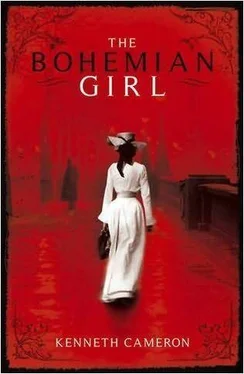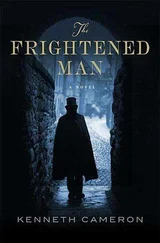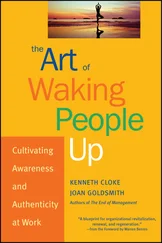Kenneth Cameron - The Bohemian Girl
Здесь есть возможность читать онлайн «Kenneth Cameron - The Bohemian Girl» весь текст электронной книги совершенно бесплатно (целиком полную версию без сокращений). В некоторых случаях можно слушать аудио, скачать через торрент в формате fb2 и присутствует краткое содержание. Год выпуска: 2010, Жанр: Детективная фантастика, на английском языке. Описание произведения, (предисловие) а так же отзывы посетителей доступны на портале библиотеки ЛибКат.
- Название:The Bohemian Girl
- Автор:
- Жанр:
- Год:2010
- ISBN:нет данных
- Рейтинг книги:5 / 5. Голосов: 1
-
Избранное:Добавить в избранное
- Отзывы:
-
Ваша оценка:
- 100
- 1
- 2
- 3
- 4
- 5
The Bohemian Girl: краткое содержание, описание и аннотация
Предлагаем к чтению аннотацию, описание, краткое содержание или предисловие (зависит от того, что написал сам автор книги «The Bohemian Girl»). Если вы не нашли необходимую информацию о книге — напишите в комментариях, мы постараемся отыскать её.
The Bohemian Girl — читать онлайн бесплатно полную книгу (весь текст) целиком
Ниже представлен текст книги, разбитый по страницам. Система сохранения места последней прочитанной страницы, позволяет с удобством читать онлайн бесплатно книгу «The Bohemian Girl», без необходимости каждый раз заново искать на чём Вы остановились. Поставьте закладку, и сможете в любой момент перейти на страницу, на которой закончили чтение.
Интервал:
Закладка:
‘Oh, yes.’ He stretched out both his legs and slowly raised the right one to put it over his left ankle. ‘I need to think. I’ve missed things.’
Lady Emmeline’s legal people got in touch with Sir Francis Brudenell, his solicitor. They were offering to pay his medical expenses in return for his signing a paper absolving Lady Emmeline and her son of all responsibility. ‘This, of course,’ Sir Francis wrote, ‘is nonsense. They are clearly terrified that we will sue. We should most certainly win, as there is no question of his having shot you or of her negligence in controlling him. However, the law is slow, and publicity could be an embarrassment to you, as it is my understanding that the shooting took place immediately after your egress from a premises less well-respected than many. It is my recommendation that I make them a counter-offer to settle the matter out of court for, let us say, your medical expenses plus ten thousand pounds. We shall settle for five. It will hardly matter to Lady Emmeline, as she owns a good deal of central Portsmouth. Of course, in case there is permanent damage from the bullets, we shall make the matter conditional on full recovery.’
It gave Denton something new to think about. With five thousand pounds, he could electrify his house, perhaps put in central heating, buy a motor car and still have enough to put away — a previously impossible luxury. On the other hand, he believed that he should earn whatever money he got. After two days, he scribbled a note: ‘Go ahead.’
He made lists. He compared dates. He reconstructed everything that had happened, dated it, made a chart of the what and the when, with the events down one side in chronological order, from his opening Mary Thomason’s letter through to the finding of the bones in Normandy. He tried to make a graph, or perhaps it was a map, of who had been in various places at various times, but it was too complicated and at the same time too empty: he didn’t know enough. After several days of it, sitting sulkily and looking at the papers he had stuck up with pins on his bedroom wall, he said, ‘Somebody’s lied to us.’
‘Who?’
He chewed on a thumbnail. ‘I mean to find that out.’ He stared at the papers; she moved about the room, picked up a book, sat to read. He said, ‘I’ve been thinking about those dreams. After I was shot.’ He chewed on the thumbnail. ‘I was afraid.’
‘But you know that.’
‘But not afraid the way I thought. It isn’t any of that elaborate allegory the doctor was trying to build; it was fear of-It’s something about the woman. The doctor was sure it was fear of death. Well, of course — all fear is fear of death, I suppose. But this was about-I don’t think the one with the shotgun was a man-’
‘It was Mary Thomason.’
He nodded.
‘A while ago, you thought that “they” would try again.’
‘I think that’s over. If they ever meant to. I wonder a little that they didn’t try to move Himple’s body after they shot me, but it was probably just too much — too risky. And they thought I’d die.’
‘They’ve given up?’
He studied his charts. ‘I hope that they don’t care about me any more. As soon as the news about finding the body hit the newspapers, there was no longer any reason. When the police couldn’t find them, they knew they’d won.’
‘So you’re safe.’
‘Unless we find something that sets them going again.’ He got up and limped around the room. He stood in front of one of his papers, arms folded. ‘I’m going to ask Munro to let me see Struther Jarrold.’
‘ Why? ’
‘Because I think he knows who Mary Thomason is.’
The Hobhouse Prison for the Criminally Insane was on the edge of Exmoor, facing a landscape that would have been bleak on the best of days. In a thunderstorm, it was dramatic and dismal. He’d asked Janet Striker if she wanted to come with him, but she’d shuddered and said she’d been inside such a place too long to ever want to see one again. When he said it was supposed to be a model of progressive institutionalization, she had said there was no such thing.
The building was grey stone, with square towers at each corner and a steepled central one for the entrance. Surrounded by a high stone wall, it was inescapably a prison; whatever was modern or progressive about it had to be inside. Munro, seeing it in the distance, said it looked like a cotton mill. ‘Not that a cotton mill wouldn’t be just the thing for Jarrold and his ilk — never done a day’s work in his life. His mum’s got him a private cell that’s furnished like a bedroom, with bookshelves and carpets and easy chairs. Everything bolted to the floor, of course, and nothing dangling about he could hang himself with. Still, it beats ten hours a day bent over a power loom.’
‘That’s the court’s idea of punishment?’
‘He isn’t being punished — no trial yet. He’s being kept isolated for society’s sake.’
Their carriage turned in at a gateway and stopped while Munro identified himself, and then they were waved in and passed under the steeple and into a vast courtyard where barred windows stared down into half an acre of gravel. Around the entire yard at ground level, porches with heavy wire from floor to ceiling held men who gaped, then shouted and gestured at the carriage while they twisted their fingers into the wire mesh.
‘Newest thing,’ Munro growled. ‘No trees or flowers to distract the demented brain.’ He looked at the porches. ‘Hell with fresh air,’ he said.
Jarrold’s cell was on the third floor. They waited in an interview room, very spare, a double table down the middle with a chest-high partition and a few oak straight chairs. The sounds of a prison made their way through the walls: incoherent voices, metal banging on metal, footfalls and the clang of doors, and here and there the screams and laughter of the insane.
They heard Jarrold before they saw him — the metallic scuffing of a chain on stone floors, the jingle of his manacles. Influential mother or not, he was put into chains to move out of his cell, and he came in bowed by the weight of them. Two warders in dark uniforms nudged him along to a chair on the other side of the partition from them, and it was only when Jarrold was seated and had clanked his ankle chains into some sort of comfortable position that he looked up at his visitors. When he saw Denton, his scowling face was replaced with a knowing, childish grin, as if they shared a secret.
Jarrold, he had been told, never spoke. Since he had fired the two bullets into Denton and shouted those few words, he had been silent, even with his attorneys and his mother. ‘Utterly withdrawn into a world of his own,’ the chief physician’s report had said. Denton wondered.
‘Please ask your questions, gentlemen,’ the more senior of the warders said. ‘We have to remain present. We think he hears what’s said to him, but — he don’t respond.’
Jarrold’s face, after that knowing smile, had fallen back into its scowl, and now he looked at his hands, limp in his lap.
Denton remained standing. He took the drawing of Mary Thomason from an inner pocket and unfolded it, looking at it to make sure it was the right side up, and then he leaned quickly forward and held it against Jarrold’s side of the partition. One of the warders started forward, saying, ‘Sir-’ and Denton said, ‘Albert!’
Jarrold’s head lifted; his eyes found the paper. His mouth opened. He began to scream.
‘I never told! Astoreth — Astoreth — I never told! I never did — Astore-e-e-th-!’ His body spasmed and his back arched as he went into a seizure.
Denton was silent all the way back in the train. He’d told Munro he wanted to think and he wanted to talk to Janet Striker; Munro was welcome to come home with him, but he’d have to wait until then.
Читать дальшеИнтервал:
Закладка:
Похожие книги на «The Bohemian Girl»
Представляем Вашему вниманию похожие книги на «The Bohemian Girl» списком для выбора. Мы отобрали схожую по названию и смыслу литературу в надежде предоставить читателям больше вариантов отыскать новые, интересные, ещё непрочитанные произведения.
Обсуждение, отзывы о книге «The Bohemian Girl» и просто собственные мнения читателей. Оставьте ваши комментарии, напишите, что Вы думаете о произведении, его смысле или главных героях. Укажите что конкретно понравилось, а что нет, и почему Вы так считаете.












